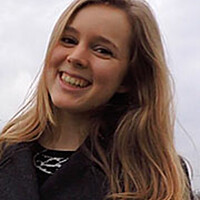47 people shot in Chicago this weekend. What can be done?
Forty-seven people were shot in Chicago over the weekend, resulting in five deaths, bringing the total to 366 homicides this year so far. In comparison, 490 Chicago residents were killed over the course of the entire year last year.
The homicide rate is still far below the levels of two decades ago, but the recent surge is being driven by deaths via firearms and is felt most acutely among black families.
"It’s almost like there are two different cities one could live in, depending on your race,” Maryann Mason, research director at the Injury Prevention Research Center, Lurie Children’s Hospital of Chicago, tells The Christian Science Monitor.
The Injury Prevention Research Center released a report Tuesday that tracks homicides in Chicago since 2005, revealing the divergent trajectories of the homicide rate for the different races.
“I was surprised and disturbed by just how elevated the risk is for African-Americans in our city. If you look at the risk for Caucasians, it’s actually gone down over time significantly,” says Dr. Mason, principal investigator behind a report. Between 2005 and 2015, the rate of homicides for whites decreased by 40 percent even as it increased by 28.7 percent for blacks over the same time period.
Gang and gun-driven violence overwhelmingly occurs in Chicago’s poor and extremely segregated South and West Sides, even as Chicago’s police department is under scrutiny for its treatment of African-Americans. It is undergoing a US Justice Department investigation, following footage released last year of an officer firing more than a dozen bullets at a black teen, Laquan McDonald. Experts predict that expensive and sweeping reforms are coming, reports the Chicago Sun-Times.
The police department is already changing its tactics, with police stops down 90 percent in the end of March. Police recorded only 20,908 investigative stops since January 1, as compared to 157,346 over the same period last year, a Chicago police spokesperson told DNAinfo, with officers saying they were increasingly hesitant to engage in proactive policing.
It's not clear whether the reduction in police stops is improving long-term community relations at the expense of stopping homicides.
Some point to the shift in gun laws as also contributing to the 47 percent increase in victims of gun violence compared to this time last year. Chicago’s gun laws aren’t as strict as they used to be, following the Supreme Court decision to strike down Chicago’s handgun ban in 2010 and a federal appeals court reversal of the city’s decades-old ban on gun stores. Guns easily cross the borders of nearby states with relatively lax gun laws. According to a 2014 Chicago Police Department report, 60 percent of the guns recovered at the city’s crime scenes between 2009 and 2013 were purchased out of state.
Chicago politicians and police met last week to discuss possible solutions, following the death of an 11-year-old girl who was killed by a stray bullet while sitting in a friend’s bedroom.
"Everybody says, 'So what are you going to do?' As if there's a single thing that's going to resolve this problem," Chicago Mayor Rahm Emanuel said at the community meeting, according to CNN. "It is a community-wide problem, which requires a community-wide solution." Mayor Emanuel stressed that public-safety efforts couldn’t be limited to the police force, highlighting the need to build community and double-down on gun-control enforcement.









